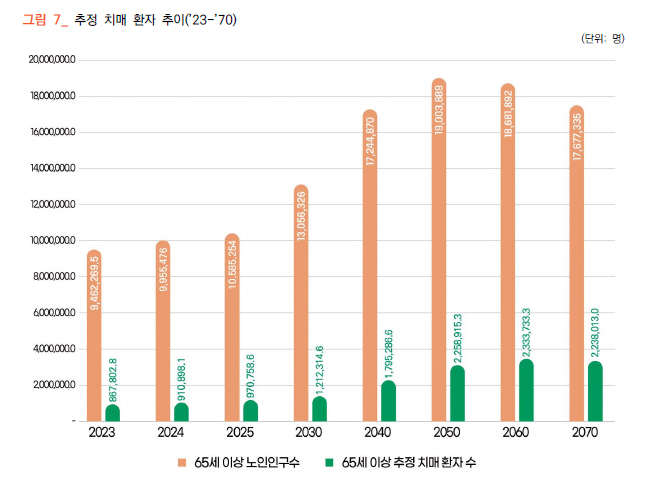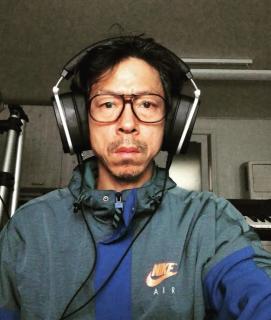The number of dementia patients has increased by 22% in the past five years...Increase the penetration rate of roaming sensors
Oct 24, 2025
|
According to data submitted by National Assembly member Seo Mi-hwa (Democratic Party of Korea), a member of the National Assembly's Health and Welfare Committee, the estimated number of dementia patients from 746,000 in 2020 to 910,000 in 2024, a 22 percent jump in five years.
According to the '2024 Korea Dementia Status' published by the Central Dementia Center of the National Medical Center, the number of dementia patients in 2040 is expected to be 1.8 million, which is twice the current level. Since then, the number of dementia patients is expected to fall after hitting a peak of 2.33 million in 2060.
Along with the increase in dementia patients, the number of missing reports and alarm messages has steadily increased. The number of reported missing persons rose 26.3% from 12,272 in 2020 to 15,502 in 2024, while the number of alert texts to find missing persons with dementia also rose 57% in three years from 1,139 in 2022 to 1,794 in 2024.
The Ministry of Health and Welfare and the National Health Insurance Service are lending and paying roaming sensors to detect dementia patients early. The Ministry of Health and Welfare has paid 9,894 units free of charge since 2021 through corporate social contributions, and the National Health Insurance Corporation has rented 40,611 roaming sensors for applicants alone since 2016. However, the total number is about 50,000, which is only 5.5% of the estimated number of dementia patients.
Currently, the Ministry of Health and Welfare provides sensors when dementia patients registered at the Dementia Relief Center wish to provide roaming sensors. However, as of 2025, the patient registration rate of dementia safety centers nationwide varies greatly by region from 43% to 100%, and compared to the number of roaming sensors applied by the center, more than 5,000 roaming sensors are insufficient.
The Ministry of Health and Welfare said "As the number of roaming sensors is covered by support projects (social contribution, etc.), it is difficult to increase demand further" and "It is also difficult to determine the exact amount of needs as dementia relief centers across the country allocate the number of applications to the Ministry of Health and Welfare to patients"
Lawmaker Seo Mi-hwa said, `The number of dementia patients is increasing rapidly due to the acceleration of aging, and this speed will inevitably increase,' adding, `As the report of dementia patients' disappearance leads to heavy administrative power such as police dispatch, it is time to consider minimizing administrative power through initial response.' "We should increase the registration rate of dementia safety centers different by region and make efforts to improve the penetration rate of roaming sensors by actively strengthening publicity so that roaming sensors can be rented and paid to dementia patients," he said.
This article was translated by Naver AI translator.














